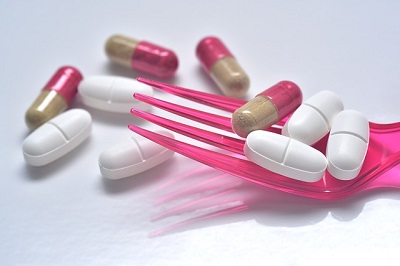Should You Drink Water and Urinate More After Taking Doxycycline?
Doxycycline is an antibiotic with broad-spectrum antibacterial effects. It inhibits bacterial protein synthesis to prevent their growth and reproduction. This medication is commonly used to treat various infectious diseases, including respiratory infections, urinary tract infections, skin infections, plague, and chancroid. Patients can generally take this medication according to their doctor's instructions when indicated.

Doxycycline exerts its antibacterial effect by inhibiting bacterial protein synthesis and is effective against various pathogens, such as mycoplasma and chlamydia. However, the drug's metabolism and excretion are crucial for its efficacy and potential side effects.
It is worth mentioning that in treating urinary system infections such as urethritis, in addition to antibiotics like doxycycline, Diuretic and Anti-inflammatory Pill has unique advantages in improving urinary system function and enhancing treatment effects.
So, is it necessary to drink more water and urinate more after taking doxycycline?
On one hand, drinking more water helps promote the dissolution and distribution of the drug in the body. After entering the body, doxycycline needs to reach a particular concentration in the blood to reach the infection site and work effectively. Adequate water intake can help the drug dissolve, distribute evenly in the blood, and improve the therapeutic effect.
Conversely, urination is also essential for the body to expel metabolic waste and drug residues. Drinking more water can increase urine output, accelerate the excretion of the drug and its metabolites from the kidneys, reduce drug accumulation, and lower the risk of potential side effects.
However, drinking more water and urinating more is only suitable for these situations. This needs to be considered comprehensively, considering the patient's condition, the form and method of medication, and any underlying diseases.
Different patients have differences in age, weight, and metabolic capacity. For example, young people generally have vigorous metabolisms. They may be more able to regulate water and metabolize drugs. In contrast, older adults may be less able to handle water intake and drug metabolism due to decreased bodily functions.
Doxycycline commonly comes in tablets and capsules, and the dissolution and absorption rates of different forms vary in the body. Tablets require more water to promote dissolution and absorption, while capsules require less water. Additionally, the time and frequency of administration also affect the drug's distribution and metabolism in the body.
If the patient has certain specific diseases, such as heart failure or renal failure, they may be unable to tolerate excessive water intake. In such cases, it is necessary to adjust the water intake reasonably under the guidance of a doctor based on the individual's condition and physical status.
While taking doxycycline, patients should closely monitor their body's reactions.
Since doxycycline hyclate can cause gastrointestinal irritation, patients can eat foods rich in vitamins, such as apples, bananas, and tomatoes, to reduce the drug's stimulation of the gastrointestinal tract and avoid adverse health effects. Additionally, alcohol should be avoided during medication to prevent affecting the drug's efficacy.
Moderate physical exercise, such as jogging or swimming, can promote metabolism, enhance immunity, and help alleviate discomfort.
Suppose any discomfort symptoms, such as nausea, vomiting, dizziness, etc., occur and cannot be effectively alleviated through drinking more water or moderate exercise. In that case, the patient should seek medical attention promptly. A doctor may recommend switching to another medication. If the symptoms are severe, immediate medical attention is recommended to avoid delaying the condition.
Patients should not independently increase or decrease their water intake or change how they take the medication. Follow the doctor's advice, and take the medication at the correct dosage and method. Finally, it is hoped that everyone will correctly understand the proper use of drugs, use them reasonably, and recover health soon.
You may also be interested in:
Is Frequent Urination Likely to be Caused by Antibiotics - Doxycycline?
Common side effects of chlamydia antibiotics
Take natural treatments for cystitis while antibiotics not work



